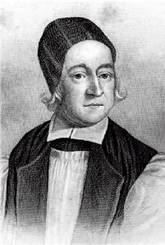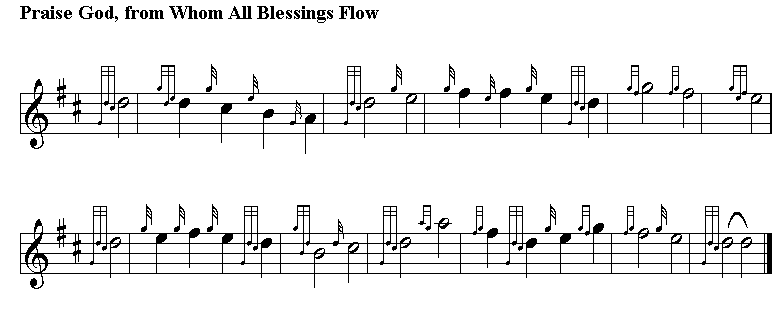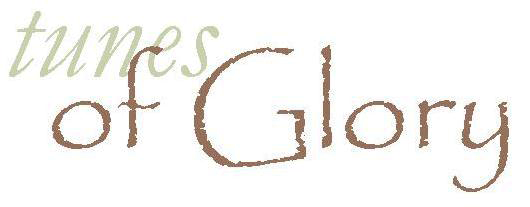
Best viewed in
Internet Explorer
Music (PDF)
Midi
Music (BMW)
Back to

Updated
09/08/2020 |
Praise God,
from Whom All Blessings Flow

Thomas Ken |
Thomas Ken
(July 1637 – 19 March 1711), English churchman, was the most
eminent of the English non-juring bishops, and one of the
fathers of modern English hymnology.
Ken was
born at Little Berkhampstead, Herts, the son of Thomas Ken of
Furnival's Inn, who belonged to the old Ken family of Ken Place,
in Somerset; his mother was a daughter of the now forgotten
poet, John Chalkhill, who (according to Izaak Walton) was a
friend of Edmund Spenser. Ken's step-sister, Anne, married Izaak
Walton in 1646, a connection which, from his boyhood, brought
Ken under the refining influence of this gentle and devout man.
In 1652 Ken entered Winchester College, and in 1656 became a
student of Hart Hall, Oxford. He gained a fellowship at New
College in 1657, and proceeded B.A. in 1661 and M.A. in 1664. He
was for some time tutor of his college; but the most
characteristic reminiscence of his university life is the
mention made by Anthony Wood that in the musical gatherings of
the time Thomas Ken of New College, a junior, would be sometimes
among them, and sing his part.
Ordained in
1662, he successively held the livings of Little Easton in
Essex, Brighstone (sometimes called Brixton) in the Isle of
Wight, and East Woodhay in Hampshire; in 1672 he resigned the
last of these, and returned to Winchester, being by this time a
prebendary of the cathedral, and chaplain to the bishop, as well
as a fellow of Winchester College. |
He remained there
for several years, acting as curate in one of the lowest districts,
preparing his Manual of Prayers for the use of the Scholars of
Winchester College (first published in 1674), and composing hymns.
It was at this time that he wrote, primarily for the same body as his
prayers, his morning, evening and midnight hymns, the first two of
which, beginning "Awake, my soul, and with the sun" and "Glory to Thee,
my God, this night," are well known. The latter is often made to begin
with the line "All praise to Thee, my God, this night," but in the
earlier editions over which Ken had control, the line is as first given.
Both of these hymns end with a doxology beginning "Praise God, from whom
all blessings flow," which is widely sung today by itself, often to the
tune Old 100th.
Ken was
briefly chaplain to Princess Mary, and later to the British fleet.
He became Bishop of Bath and Wells in 1685. He was one of several
bishops imprisoned in the Tower of London for refusing to sign
James II’s “Declaration of Indulgence” (hoping to restore
Catholicism in England); he was tried and acquitted. Ken wrote
much poetry, published posthumously in 1721.

Lyrics by Thomas Ken
Praise God,
from Whom all blessings flow;
Praise Him, all creatures here below;
Praise Him above, ye heavenly host;
Praise Father, Son, and Holy Ghost.
|



